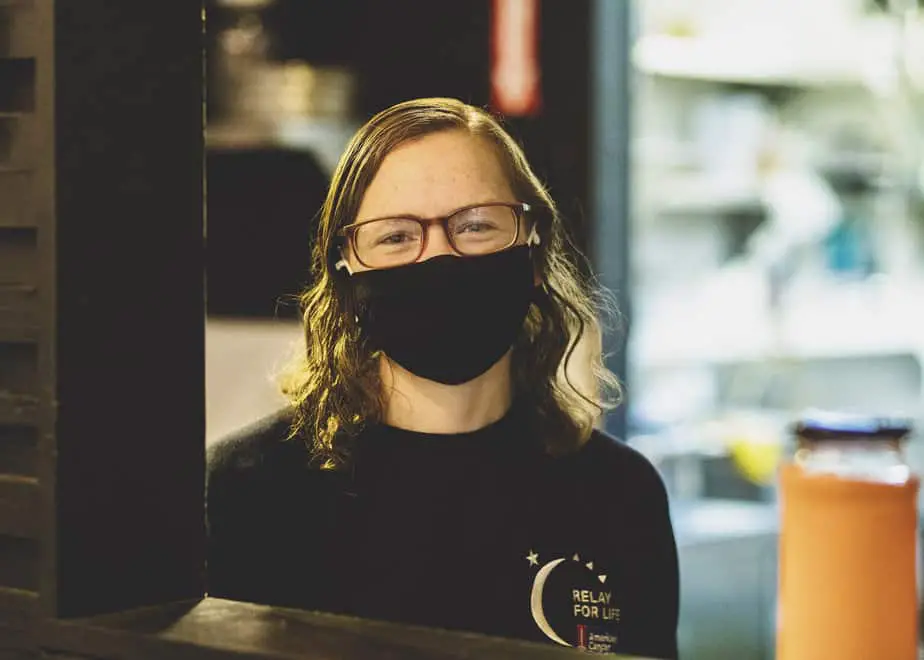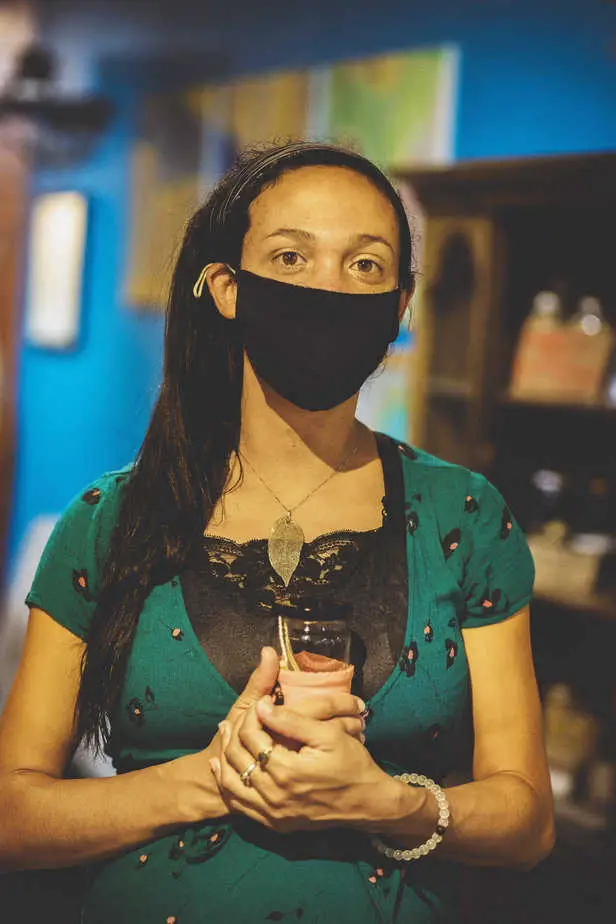Wax poetic about MudLab—what is it and how did you dream it up?
It all started while I was running Lake Merritt and saw how much trash was ending up in the lake. I organized “Fit For Good,” where we would pick up trash while running on the weekends. After that, it became a question of how can we get one establishment to switch over to all reusables and help keep the lake clean? That then evolved into what the Mudlab is today (originally called “For Here Please”). We began implementing a zero-waste process in cafes one-on-one but quickly realized we needed a space for people to come together and share ideas. So we really started out as an event space and then eventually turned into a cafe and grocery store. Our mission is to make sustainability accessible and affordable for all. We try to do this in multiple ways—from offering sliding scale prices at our store and welcoming in people regardless of their experience with zero-waste, to serving as a community hub for sustainability and sustainable action. As far as the name, “mud” is another word for coffee, and the word “lab” came from the fact that we’re always trying new things. We’re really experimental and welcome new ideas, so it just made sense!
How does MudLab try to influence fellow business owners?
The first cafe we helped go zero-waste was Perch—a year to the date! We replaced single-use plastic with reusable glass jars. And a lot of what we do is based off the New Parkway Theater, which is a 100% plastic free theater who pays their staff a living wage. We also have a contract with ReThink Disposable, a company that helps local businesses save money while becoming more sustainable. We also seek out businesses that don’t use single-use plastic, and treat workers well and pay them a living wage. We hosted (until the pandemic!) meet-ups and events at these places just to support them in their mission. I really do believe that sustainability starts with the employees. It’s one thing for the owner to want and push for things, and it’s another thing for everybody to be onboard. I also think that sustainability is something that only people from a certain economic standpoint can access considering it is usually more expensive. And it takes more time and thought to remember your reusable mug every day, or to have time to sit down at a restaurant opposed to getting it to go. I really believe you can prioritize people and the planet above profits, and that’s our goal as a cafe—to spread that same sentiment to other establishments.
The MudLab is very community oriented—what initiatives are you driving to positively impact Adam’s Point and other neighborhoods within Oakland?
We encourage people to reduce plastics in their everyday life by providing them the tools to do so. We’re always looking for ways to reduce waste, from collecting leftover food from the Alameda Food Bank and distributing weekly to families in need to our big initiative: The Lake Merritt Summer Clean Up Contest. The contest just ended and 37 volunteers pulled out over 400 bags of trash from the lake in just 2.5 months! We partnered with the city of Oakland, and they really stepped up their game—they’ve put out a lot more trash cans and sent out cleaning crews more often, as well as providing our volunteers with supplies to make picking up trash easier. What’s really sad though is that there’s still trash ending up in the water. We use so much disposable trash. And that’s really what we’re trying to do here—reduce and set an example for neighboring businesses that reusable systems are possible.
How do you keep finding inspiration?
It’s funny, when you have a physical location, people will just come to you with ideas. So we get a lot of product recommendations from customers. We also seek out certain brands, but I always like to think “What is really hard for me to get zero-waste in my own life?” and kind of go from there as well. It also depends on what brands are willing to have a sustainable supply chain. Some local brands are really willing to work with us, whereas some businesses won’t! We’ve had to turn down a lot of business relationships because of that. But that’s okay, and an important thing to do when sustainability is core to your mission.
If our reader wants to live a more sustainable lifestyle, what is one thing they can start doing today?
I think people find that it’s overwhelming at first, but you can really just start with the small things! Try bringing a reusable water bottle with you or reusable bags. After a while it becomes a part of your routine, like remembering your keys or your wallet. Just start with a few small things and build from there—it just takes a bit of work at the beginning. As well as supporting brands already doing this stuff. Vote with your dollar!
You have coffee, ice cream, baked goods, flour, and other home good staples. Why are most people walking in the door?
We get such a great mix of people walking through these doors. We get some people who are just driving to work and see a sign for coffee and just stop. And chances are, they don’t have an interest in zero-waste, and just need a coffee. But we like to say that we make the coffee kind of slow so people can look around and learn about sustainability! And then you get other people who’ve actively sought us out and walk in saying “Oh my god I love this place” which is always really nice.
The MudLab was a part of a few businesses who were impacted during the protests—what are your thoughts as a small business owner?
We understand how important the protests are and we definitely understand where the anger is coming from—it’s been a long time coming and rightfully so. But it’s frustrating as a small business owner; it’s an incredibly hard time to operate. So when you have $1,000 or $10,000 in damage or however much it’s going to cost to get these windows repaired, it’s definitely a setback. But I also feel for big businesses who employ people within the community. I don’t think that destroying businesses is the answer, but I also think that anger is justified and useful. And the community is super supportive—people came by at all times during the night after it happened to offer help cleaning up broken glass, as well as the following day.
Is there anything else you want people to know about living a sustainable lifestyle?
Ever since MudLab’s inception there’s definitely been ups and downs. Every time something really great happened, something hard happened as well. But I think the reason why we’ve survived this long is because of community resilience, and the relationships we’ve built with customers. I just think that sustainability and keeping a business growing in a really hard time has to do with relationships. I love Oakland, and the community has been the center of this business.
// 440 Grand Ave, Oakland; mudlaboak.com. Photography by Marcell Turner, photography was taken at Mudlab, before opening at a 6-foot distance.

